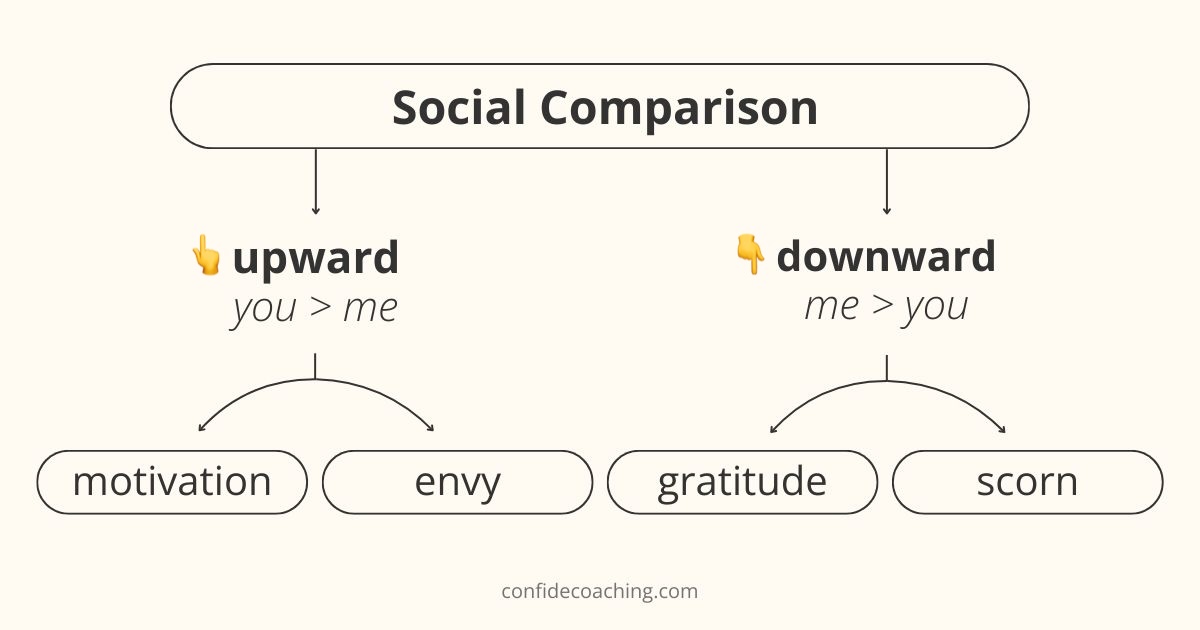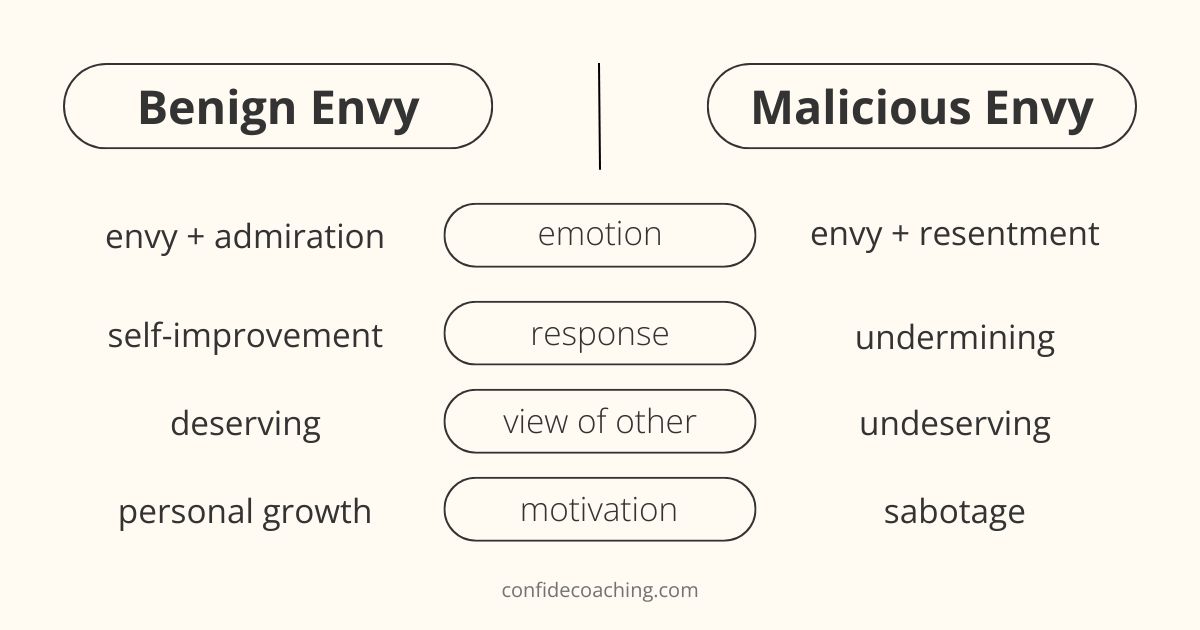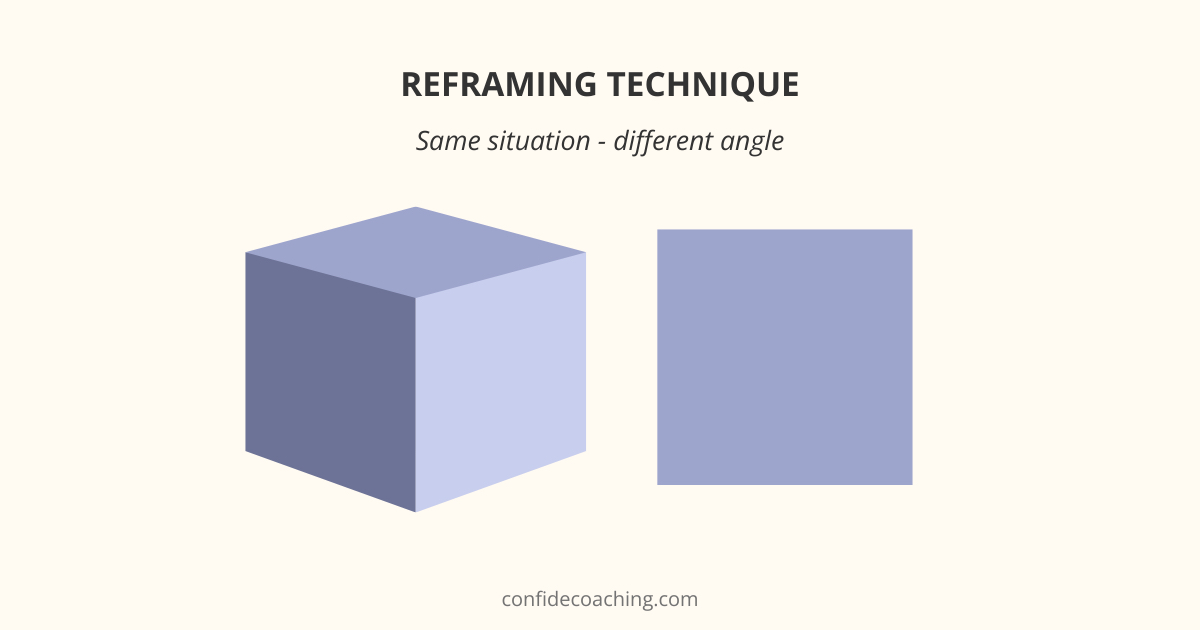
You’re doing fine. Actually, some days you’re doing really well. But then—scroll.
There it is: someone your age just launched a company, ran a marathon, or posted dreamy photos from Italy with a caption about “living their purpose.” You pause. Your stomach tightens. Suddenly, that thing you were proud of—finally getting back to the gym, making a brave career shift, or just keeping it together this week—feels small.
You didn’t ask for this moment. But now it’s here, whispering that somehow, you’re behind. That you should have figured things out by now. That other people are thriving while you’re treading water.
If this sounds familiar, you’re not alone. You’re also not broken. This experience has a name—social comparison—and it’s something every human brain does, often without permission.
It’s easy to assume we just need to “stop comparing.” And if you’re a parent, that might be the exact advice you give your kids when they feel discouraged or left out. But the truth is, that’s not how our minds work. We’re wired to make sense of our place in the world by looking around us.
The real question isn’t whether we compare—it’s how we respond when we do.
Social comparison isn’t inherently bad—it’s a tool. Like any tool, it can be destructive in the wrong context or transformative in the right hands.
In this article, we’ll unpack the science behind social comparison, explore how to recognize when it’s hurting you, and—most importantly—show you how to turn it into a catalyst for growth instead of a source of self-doubt.
Because the goal isn’t to be them. It’s to become more of you.
The Science Behind Social Comparison
At its core, social comparison is not a flaw—it’s a feature of being human. From an evolutionary standpoint, our ancestors had to constantly scan their environment to figure out where they stood in the social hierarchy. Knowing who was thriving, struggling, leading, or falling behind wasn’t just interesting—it was essential for survival.
That instinct didn’t disappear with the invention of Instagram. It just got more complicated.
The psychologist Leon Festinger first coined the term social comparison in 1954. His theory suggests that we evaluate ourselves not in isolation, but in relation to others—especially when we lack objective benchmarks. If you’re not sure how well you’re doing, your brain instinctively looks sideways: How’s everyone else doing?
Modern neuroscience has confirmed just how deeply this is wired into us. Recent imaging studies show that upward social comparison—comparing yourself to someone who seems more successful—activates brain regions linked to both reward and threat detection (Gilbert et al., 2022). In other words, part of you feels motivated, and another part feels like you’re in danger.
Researchers have also found that some people have a higher social comparison orientation than others—meaning they’re more naturally inclined to compare themselves in everyday situations (Gibbons & Buunk, 1999). This isn’t a moral failing or a mindset issue; it’s simply a trait. But understanding how it works can help you change how it affects you.
Here’s where it gets even more relevant: social comparison tends to spike during periods of uncertainty or identity transition. Midlife. Career changes. Parenthood. Empty nests. New beginnings. Whenever the ground beneath you is shifting, your brain starts looking outside for clues. Am I doing this right? Is this normal? Am I enough?
That instinct is human. But letting it define your worth is optional.

When Comparison Turns Toxic
Not all comparison is helpful. When unchecked, it can become a slow leak in your confidence—or worse, a silent driver of anxiety, resentment, or burnout.
The most common form of harmful comparison is chronic upward comparison—those frequent moments when you measure yourself against people who seem to have more: more success, more beauty, more purpose, more control. And thanks to social media, this kind of comparison isn’t occasional—it’s constant.
Recent research shows that repeated exposure to curated online content can distort self-perception and erode emotional well-being. One meta-analysis found that comparing yourself to others on platforms like Instagram and LinkedIn is associated with higher levels of depression, anxiety, and self-criticism—especially when those comparisons are passive and unintentional (Appel et al., 2015).
You don’t need to read captions that say “I’m better than you” to feel the impact. Our minds fill in the blanks. As Dr. Ethan Kross, author of Chatter: The Voice in Our Head, Why It Matters, and How to Harness It, and his 2025 book Shift: Managing Your Emotions–So They Don’t Manage You, explains, “When we compare our behind-the-scenes to someone else’s highlight reel, we fuel the kind of self-talk that drains us.”
Even sleep quality can take a hit. A study by Yu et al.(2024) found that young adults who scrolled social media at night—particularly those engaging in social comparison—reported poorer sleep and lower next-day self-worth.
Here’s what makes it even trickier: toxic comparison doesn’t always feel dramatic. Sometimes, it looks like low-grade dissatisfaction. Like an internal hum that says, Everyone else has figured this out. Why haven’t I?
It’s the sense that you’re somehow failing at a race you didn’t even know you were running.
That’s when it’s time to shift perspective—and reclaim your attention.
The Hidden Value of Comparison
Not all comparison is harmful. In fact, when approached with awareness, it can quietly become one of your best tools for growth.
This is where we introduce a powerful reframe: what if the envy or self-doubt you feel is actually a clue about what matters to you?
Research supports this idea. Psychologist Niels van de Ven and colleagues (2011) introduced the concept of benign envy—a form of envy that doesn’t seek to tear others down, but instead sparks motivation to rise. In their studies, participants who experienced benign envy were more likely to take action toward self-improvement than those who felt admiration or no envy at all.
In other words, that pang you feel when someone publishes a book, gives a TED Talk, or changes careers at 50? That’s not just jealousy. It might be direction.

Another study by Yang et al. (2018) found that intentional upward comparison—done with curiosity instead of judgment—can actually increase self-efficacy. Participants who reflected on others’ successes and then focused on their own next steps were more likely to feel empowered, not deflated.
And comparison isn’t just upward. Downward comparison—noticing others who are struggling more than you—can serve as a tool for gratitude and perspective, especially during tough seasons. While it shouldn’t be used to invalidate real emotions, it can gently remind you that you’re not alone in your challenges, and that progress often happens quietly.
Most importantly, comparison can function as a mirror. What you react to in others often reveals something about your own values, goals, or unmet needs.
Ask yourself: Am I comparing because I truly want what they have—or because I feel like I should?
Used this way, comparison becomes less about measuring your worth—and more about clarifying your path.
Tool: Reframe and Redirect
Let’s walk through a simple tool I use often with life coaching clients when social comparison starts to take over. You can use this anytime you feel that twinge of “I’m behind” or “Why can’t I be more like them?” It won’t erase the thought—but it will help you move through it with clarity instead of spiraling into self-doubt.
Take a breath. Here’s how it works:

Step 1: Pause and name it
When you notice that uncomfortable feeling—maybe it’s after seeing someone’s success online or hearing a story about their progress—your first move is to pause. Just take one second and say to yourself:
“I’m comparing myself to someone. That’s okay.”
That statement matters. You’re not pushing the thought away, and you’re not judging it. You’re simply acknowledging what’s happening with kindness and honesty. It’s a normal part of being human. Everyone compares—this step just helps you catch it before it drags you down.
Step 2: Ask a Better Question
Now that you’ve named the moment, I want you to gently ask yourself one or two of these questions:
- “What is this showing me that I care about?”
- “What am I assuming that might not actually be true?”
You’re not trying to fix the feeling—you’re trying to understand it. Maybe their success is tapping into something you deeply value but haven’t prioritized yet. Maybe you’re assuming their life is effortless, even though you don’t see their full story.
This step helps you shift from reaction into reflection. And that shift opens up possibility.
Step 3: Take a Small Action in Your Lane
Now that you’ve uncovered what this comparison might be telling you, ask:
What’s one small thing I can do right now to support where I’m going?
This doesn’t need to be big. It can be as simple as:
- Writing down a goal you’ve been avoiding
- Sending one email that moves your project forward
- Drinking water and resetting your focus
- Saying out loud: “That’s their path. Mine looks different—and that’s okay. I’m building what matters to me.”
The goal isn’t to match someone else’s pace. It’s to reconnect with your own.
I want you to remember this: you don’t have to stop comparing to take back your power—you just need to learn how to respond differently and pay attention to what the comparison reveals about your priorities and values. This tool helps you do exactly that. And the more you practice, the easier it becomes to catch the moment and gently steer yourself back to what truly matters.
Life Coaching in Action
Let’s bring this into your world—because comparison doesn’t just show up during dramatic life moments. It often sneaks in quietly, in the middle of an ordinary day, and starts shaping how you feel about yourself without you even noticing.
Here are a few common scenarios I see in life coaching sessions, along with reframes that help shift the internal conversation:
“I should be further along by now.”
Maybe you’re in midlife, switching careers, or starting over in some area. You look around and think, Everyone else my age is more established. I’m behind.
Reframe it:
What if you’re not behind—you’re just on a different path? Maybe your timeline isn’t broken. Maybe it’s unfolding exactly how it needs to, based on your life experience, values, and choices.
Redirect with action:
Identify what matters most to you now, not what mattered five or ten years ago. What are you building that you never would have had the courage or clarity to build back then?
“They’re doing it better than I ever could.”
You admire someone’s success in your field or life stage—but instead of feeling inspired, you feel deflated. What’s the point in trying if I’ll never do it like they do?
Reframe it:
You’re not meant to do it like them. You’re meant to do it your way. Their excellence doesn’t cancel out your potential—it just shows what’s possible.
Redirect with action:
Ask: What’s one thing I admire about what they’re doing—and how can I start building that in my own way, with my own voice or strengths?
“I’m stuck while everyone else is moving forward.”
Maybe you’re in a slow season—parenting, caregiving, recovering from burnout—and it feels like everyone else is achieving, thriving, or growing while you’re standing still.
Reframe it:
Sometimes staying still is a form of forward movement. Rest, reflection, and healing are part of growth too. You’re not doing nothing—you’re preparing.
Redirect with action:
Look for signs of quiet progress: Are you more self-aware than you were a year ago? More intentional? Less reactive? Progress isn’t always visible—but it’s still happening.
“I can’t stop comparing, and it’s exhausting.”
You might know comparison isn’t helpful, but it still feels automatic and emotionally draining.
Reframe it:
You don’t need to eliminate comparison to find peace—you just need to shift your relationship with it. It’s not the comparison that drains you. It’s believing the story that comes with it.
Redirect with action:
Use the Reframe and Redirect tool. The moment you catch the thought, name it and gently guide your attention back to what you value, what you’re learning, or what small step you can take right now.
These aren’t just mindset tricks—they’re habits of attention. And over time, they create a more resilient, grounded way of relating to yourself and your goals.
Because comparison may always visit—but it doesn’t have to stay in charge.
Conclusion: Make Comparison Work for You
Social comparison isn’t something you need to fix or eliminate—it’s something you can learn to work with. When you pause, reframe, and redirect, you move from reacting to responding. You stop letting comparison define your worth and start letting it reveal your values, priorities, and next steps.
So the next time you catch yourself thinking, “I should be further along” or “They’re doing it better”—take a breath. Use the moment as a mirror, not a verdict.
You’re not falling behind. Comparison doesn’t define your pace—your next step does.
Try this journaling prompt
Take 5–10 minutes today to explore one of these questions in your journal:
- What recent moment of comparison really stuck with me—and what might it be revealing about my deeper values or goals?
- What small action can I take this week that reflects my own priorities, not someone else’s timeline?
Let your answers guide you back to your own lane.
Ready to take it deeper?
If you’re navigating a life transition, questioning your direction, or just tired of feeling like you’re always measuring yourself against others—I can help.
Life coaching offers a space to get clear on what you want, build habits that support your growth, and develop the tools to stay grounded no matter who or what shows up around you.
Book a free consultation to explore whether life coaching is the right next step for you.

Paul Strobl, MBA, CPC
Owner of Confide Coaching, LLC
Paul is a Master Life Coach for GenX and GenY executives and business owners. Originally from Houston, Texas, he has been location independent for most of his adult life. He currently resides in the Rhodope Mountains of Bulgaria near the Greek border with his brilliant wife, 14-year-old stepson (officially adopted in 2021!) and a Posavac Hound rescue.
References
Appel, H., Crusius, J., & Gerlach, A. L. (2015). Social comparison, envy, and depression on Facebook: A study looking at the effects of high comparison standards on depressed individuals. Journal of Social and Clinical Psychology, 34(4), 277–289. https://doi.org/10.1521/jscp.2015.34.4.277
Gibbons, F. X., & Buunk, B. P. (1999). Individual differences in social comparison: Development of a scale of social comparison orientation. Journal of Personality and Social Psychology, 76(1), 129–142. https://doi.org/10.1037/0022-3514.76.1.129
Luo, Y., Eickhoff, S. B., Hétu, S., & Feng, C. (2018). Social comparison in the brain: A coordinate-based meta-analysis of functional brain imaging studies on the downward and upward comparisons. Human Brain Mapping, 39(1), 440–458. https://doi.org/10.1002/hbm.23854
Kross, E. (2021). Chatter: The voice in our head, why it matters, and how to harness it. Crown Publishing.
Kross, E. (2025). Shift: Managing your emotions—so they don’t manage you. Crown Publishing.
Yu, D. J., Wing, Y. K., Li, T. M. H., & Chan, N. Y. (2024). The impact of social media use on sleep and mental health in youth: A scoping review. Current Psychiatry Reports, 26(3), 104–119. https://doi.org/10.1007/s11920-024-01481-9
Van de Ven, N., Zeelenberg, M., & Pieters, R. (2011). Why envy outperforms admiration. Personality and Social Psychology Bulletin, 37(6), 784–795. https://doi.org/10.1177/0146167211400421
Verduyn, P., Gugushvili, N., & Kross, E. (2021). Do Social Networking Sites Influence Well-Being? The Extended Active-Passive Model. Current Directions in Psychological Science, 31(1), 62-68. https://doi.org/10.1177/09637214211053637
Yang, C.-C., Holden, S. M., & Carter, M. D. K. (2018). Social media social comparison of ability (but not opinion) predicts lower identity clarity: Identity processing style as a mediator. Journal of Youth and Adolescence, 47(10), 2114–2128. https://doi.org/10.1007/s10964-017-0801-6

